Various media outlets since yesterday have reported on a secret US embassy cable showing a Norwegian third-party facilitator in the peace process between the National Democratic Front of the Philippines and the Philippine government discussing details of the peace talks with a representative of the US embassy in Manila. The cable puts to question Norway’s avowed impartiality in the peace processes it is involved in.
In the cable marked “Secret” because of the sensitivity of the conversation, Norwegian Special Envoy Vegar Brynildsen met with US embassy political officers on February 3, 2010 to discuss Norwegian efforts to facilitate peace talks between the Philippine government and the National Democratic Front of the Philippines. (10MANILA235)
The cable carried a “Strictly protect” clause since Brynildsen was seriously concerned that discussion of his meeting “could call into question the discretion of the Norwegian facilitators”.
Media outlets who reported on this particular cable focused on Byrnildsen’s observations on the peace process, the NDFP, its chief political consultant Jose Ma. Sison and the Left’s participation in 2010 Philippine presidential elections. Byrnildsen commented that Sison appeared “not in control” of the movement in the Philippines, citing alleged differences between the Europe-based negotiators and the Philippine-based leadership.
The NDFP represents the revolutionary movement that has been waging a four-decade long “people’s war” against the Philippine government and US imperialism. Sison, the NDFP’s chief political consultant, was previously listed as a “terrorist” by the US and EU. In 2009, the European Court of First Instance removed Sison’s name from the EU list.
Byrnildsen said it was a “real challenge” to work as facilitator while not knowing the inner workings of the NDFP. He also said that he was not “positively impressed with the quality of Philippine government intelligence on the NDFP”.
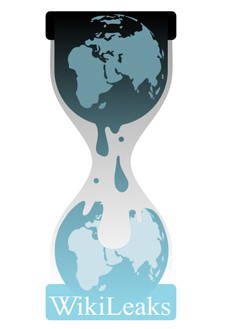
This is a "WikiLeaks News Update", a daily news update of stories that are obviously related to WikiLeaks and also freedom of information, transparency, cybersecurity, and freedom of expression. All the times are GMT.
10:00 PM Companies working with the Khartoum government enabled the perpetration of atrocities against civilians in Darfur.
09:20 PM A round-up of WikiLeaks news by newspaper The Zimbabwean:
The late army commander General Solomon Mujuru allegedly sent an emissary to the MDC without President Robert Mugabe’s knowledge in 2000 to warn the party about a planned violent crackdown.
Goodson Nguni, a well known Zanu (PF) activist, was named as the emissary. It is alleged that he negotiated a pact with the MDC whereby they agreed to an amnesty for current and past government officials, in return for an open dialogue about the possibility of forming a coalition government.
It has also been revealed that African diplomats have called for President Robert Mugabe’s ‘graceful’ exit from power. Leaders who, in the past, have stood by the octogenarian leader, have, according to Wikileaks, grown impatient with the Zimbabwean situation. (…)
08:50 PM Canadian multiculturalism policies were believed by Canadian officials to have affected the efficacy of anti-terrorism and anti-radicalization efforts.
 Demonstrators in downtown Khartoum's Abu Janzeer square were beaten with sticks and truncheons as they protested today for the end of President Omar al-Bashir’s 21-year rule. Reportedly five hundred riot police arrested over 50 protesters today, and beat up others. As WL Central reported, Sudan began protesting for regime change on January 30 and were met with a violent crackdown which resulted in one student dead on the first day. According to Human Rights Watch the students and youth, some as young as 18, were subjected to harsh beatings, electric shocks, and other abuses that amount to torture. Security officials are also implicated in the rape of a female youth activist in February.
Demonstrators in downtown Khartoum's Abu Janzeer square were beaten with sticks and truncheons as they protested today for the end of President Omar al-Bashir’s 21-year rule. Reportedly five hundred riot police arrested over 50 protesters today, and beat up others. As WL Central reported, Sudan began protesting for regime change on January 30 and were met with a violent crackdown which resulted in one student dead on the first day. According to Human Rights Watch the students and youth, some as young as 18, were subjected to harsh beatings, electric shocks, and other abuses that amount to torture. Security officials are also implicated in the rape of a female youth activist in February.
Yesterday, police arrested and beat over 40 women after they attempted to stage a protest in Khartoum’s twin city of Omdurman demanding the authorities cease "violence against women," and protesting the rape and beating of Saffiya Ishaq, who was attacked after the January 30 protests. Ishaq told her story in a video posted to Youtube on February 23, please watch.
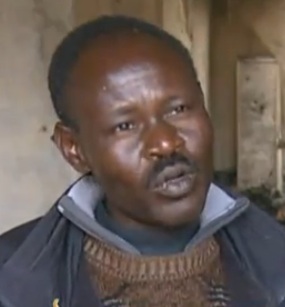 A cable from December 2007 features Gaddafi Development Foundation Executive Director Dr. Yusuf Sawani discussing trans-national terrorism threats and security with US diplomats. The director talks about the fact that a million sub-Saharan African guest workers are resident in Libya and says it should be a “cause of concern.” The workers are a concern because Dr. Sawani believes any of those individuals could possibly commit an act of terrorism. In recent days, many of those guest workers have fled, as Libyans have grown suspicious and attacked a number of black Africans due to reports that Leader Muammar Gaddafi hired “black African mercenaries.”
A cable from December 2007 features Gaddafi Development Foundation Executive Director Dr. Yusuf Sawani discussing trans-national terrorism threats and security with US diplomats. The director talks about the fact that a million sub-Saharan African guest workers are resident in Libya and says it should be a “cause of concern.” The workers are a concern because Dr. Sawani believes any of those individuals could possibly commit an act of terrorism. In recent days, many of those guest workers have fled, as Libyans have grown suspicious and attacked a number of black Africans due to reports that Leader Muammar Gaddafi hired “black African mercenaries.”
The latest from the United Nations Office for the Coordination of Humanitarian Affairs (OCHA) indicates 191,000 or more have fled Libya to Egypt, Tunisia and Niger. A previous report estimated around 80,000 Pakistanis, 59,000 Sudanese, 50,000 Bangladeshis, 26,000 Filipinos, 2,000 Nepalese and other African and Asian migrant workers are hosted by the country.
OCHA reports have been tracking the risk of violence migrant workers face. In a March 3 update, OCHA notes, “Sub-Saharan nationals remain at risk of violence from local populations on suspicion of being Government-recruited mercenaries.” A report on March 2 detailed the needs of those fleeing Libya highlights the need for protection. It reads:
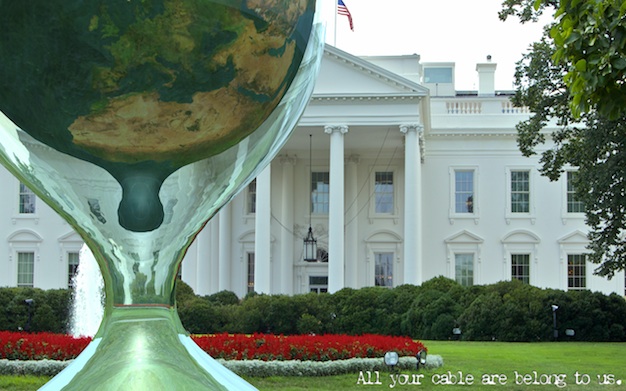 El País: Israel pidió a España que investigara los vínculos de sus bancos con Irán (Israel asked Spain to investigate links with Iranian banks)
El País: Israel pidió a España que investigara los vínculos de sus bancos con Irán (Israel asked Spain to investigate links with Iranian banks)
"El Gobierno de EE UU no es el único que mostró su preocupación por la relación que varias empresas españolas desarrollaron con Irán. En una reunión celebrada a principios de 2009 en la embajada estadounidense en Madrid, un representante del Ministerio de Exteriores español informó de los movimientos que había hecho Israel para informarse de hasta dónde llegaba el vínculo Madrid-Teherán. (The U.S. government is not the only one who was concerned about the relationships developed between Spanish companies with Iran. At a meeting in early 2009 at the U.S. Embassy in Madrid, a representative of the Spanish Foreign Ministry informed of the movements that Israel had to find out how far the link between Madrid and Tehran went.)"
Read more (Spanish) Google Translate
El País: EE UU: Los sandinistas robaron las municipales de 2008 (USA: The "Sandinists" stole the 2008 municipal elections)
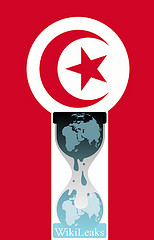 For those in countries that are working to topple brutal and oppressive regimes, there is a power that WikiLeaks cables have, one that can be tremendously beneficial. Cables from Tunisia, Sudan, Yemen, Syria, Algeria, Bahrain, Libya, Jordan, and Saudi Arabia all illuminate why the people of those countries would rise up against their governments. They compel people to acknowledge the magnitude of abuses and suffering that the people have been experiencing under autocratic regimes.
For those in countries that are working to topple brutal and oppressive regimes, there is a power that WikiLeaks cables have, one that can be tremendously beneficial. Cables from Tunisia, Sudan, Yemen, Syria, Algeria, Bahrain, Libya, Jordan, and Saudi Arabia all illuminate why the people of those countries would rise up against their governments. They compel people to acknowledge the magnitude of abuses and suffering that the people have been experiencing under autocratic regimes.
The planned “Day of Rage” protests being met with security forces and violence in Algeria, Iran and Yemen can be further understood thanks to the cables. The clashes in Bahrain and the brewing unrest in Syria can be illuminated because of the analysis from US diplomats in the cables. And, what continues to unfold in Egypt and Tunisia and inspire people in countries like Iraq, Jordan, Kuwait, Saudi Arabia, Sudan and Libya, whose people intend to hold their own “Day of Rage” on February 17.
Map via @Houeida Anouar
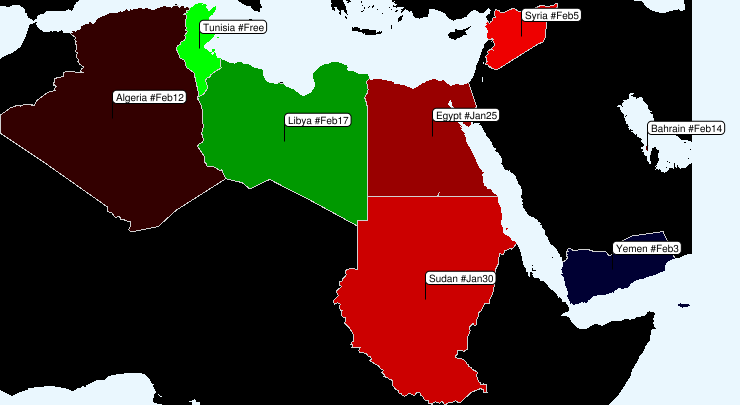
Tunisia December 15:
2011-02-01 Tunisian Islamic Leader Returns as EU Freezes Ousted President's Assets
2011-01-27 Tunisia protests continue as a warrant is issued for Ben Ali
2011-01-24 Tunisia today: "It’s not a unity government, it’s a fake unity government”
Protests continue in Khartoum despite violent police suppression which has resulted in one reported death of a protester. Tweets from activists in Khartoum say the government has started blocking some protesters' individual cell phones. On Tuesday, around 200 students were beat back from protesting outside outside al-Nilein university by police who have already arrested and injured many protesters and killed one.
Opposition Islamist Hassan al-Turabi and a dozen members of his party were arrested earlier this month and are being held without charges. The African Center for Justice and Peace Studies released a statement saying "These ongoing rights violations are a pattern to silence dissident voices and limit access to information. The responses undertaken by police forces ... exemplify the extent to which the (ruling party) are unwilling to tolerate any other voices on the road to democratic transformation." They also said that police had detained more than 100 people on Monday and were continuing arrests, with people being taken from their homes and offices. Numbers that have been detained are impossible to keep track of. Rallies are illegal in Sudan without permission, which is rarely given.
As WL Central reported yesterday, protesters in Sudan were beaten by riot police as they tried to leave their universities to demonstrate. Today the facebook page for the January 30 demonstration contains a red script proclaiming a martyr. "Al-Gorashy was a martyr for us. And you are our martyr now, Mohammed Abdulrahman", it says, in reference to a student who died this morning in Omdurman hospital after being beaten by the police yesterday.
Al Jazeera reports"Medical sources confirmed to us that the student died yesterday from his injuries inflicted by security forces," said Yasir Arman, the top official in the north of south Sudan's main party, the Sudan People's Liberation Movement (SPLM). Arman condemned the use of force and said the students were trying to hold peaceful demonstrations.
Sudanese protesting in Khartoum yesterday were attacked and arrested by hundreds of riot police as they chanted "We are ready to die for Sudan," and "Revolution, revolution until victory". The police surrounded the entrances of four universities in the capital, firing teargas and beating students at three of them.
Youth For Change had called for a demonstration on Sunday, January 30 from 11:00am - 2:00pm. Their facebook page attracted 16,864 followers to "Attending the Peace Process in Khartoum, Sudan" and said, "The people of Sudan will not remain silent any more. It is about time we demand our rights and take what's ours in a peaceful demonstration that will not involve any acts of sabotage. We will come out to protest the high cost of living, corruption, nepotism, unemployment and all the practices of the regime, including striking women... that are contrary to the most basic laws of Islam and humanity, and violate the rights of minorities. We will go out to prove to the whole world that the people... will not remain silent in the face of persistent injustice and humiliation.
But Al Jazeera reports
Pro-government newspapers carried front page warnings against protests which they said would cause chaos and turmoil.
The Sudan Vision daily's editorial blamed the opposition.
"Our message to those opposition dinosaurs is to unite their ideas and objectives for the benefit of the citizens if they are really looking for the welfare of the Sudanese people," it read.
The pro-democracy group Girifna ("We're fed up") said nine members were detained the night before the protest and opposition party officials listed almost 40 names of protesters arrested on Sunday. Five were injured, they added.
Foreign Policy provides a summary by country of US state policy for Somalia, Sudan, Zimbabwe, Pakistan, Kenya, Nigeria, Burma, North Korea, Eritrea, including what the state cables have so far revealed.
By now, you've read the WikiLeaked headlines, illuminating the inner workings of U.S. policy in Iraq and Afghanistan, or detailing the intractable regimes in Iran and North Korea. But what does Cablegate have to say about the world's forgotten conflicts -- the dimmer outposts of U.S. influence where Washington arguably has even bigger messes to confront? FP went through the archives with an eye to our 2010 Failed States issue to see what light the cables shed on these benighted places -- and whether the cables themselves may disrupt the often delicate balancing act of diplomacy.
Theme by Danetsoft and Danang Probo Sayekti inspired by Maksimer